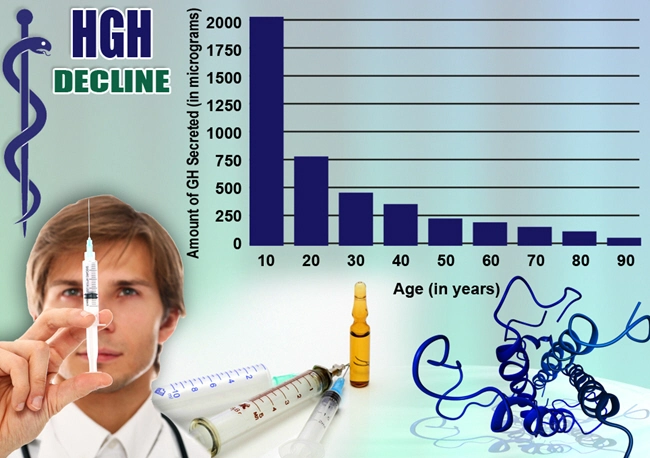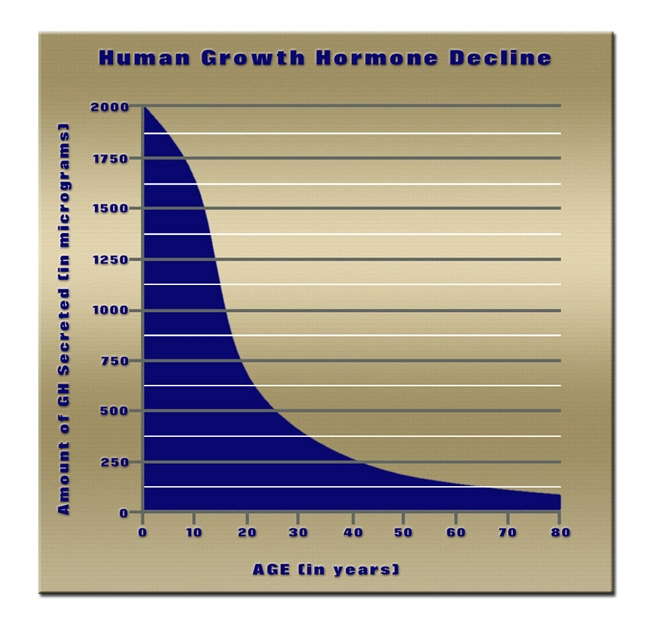
Introduction
Prostate health is a critical concern for American men, with prostate cancer being one of the most prevalent forms of cancer in this demographic. However, the incidence and outcomes of prostate-related conditions vary significantly across different racial and ethnic groups. This article delves into the influence of ethnicity on prostate health, providing a comparative analysis to enhance understanding and guide targeted healthcare strategies.
Prostate Cancer Incidence Across Ethnic Groups
Prostate cancer incidence rates exhibit notable variations among different ethnic groups in the United States. African American men face the highest risk, with incidence rates that are approximately 1.7 times higher than those of Caucasian men. In contrast, Asian American and Pacific Islander men have the lowest incidence rates. These disparities are not solely attributable to genetic factors; socioeconomic status, access to healthcare, and cultural attitudes towards health screenings also play significant roles. Understanding these patterns is crucial for developing effective public health interventions tailored to specific communities.
Genetic and Biological Factors
Genetic predispositions contribute significantly to the ethnic disparities in prostate health. Studies have identified specific genetic markers that are more prevalent in African American men, which may increase their susceptibility to aggressive forms of prostate cancer. Additionally, variations in androgen receptor gene polymorphisms have been linked to different prostate cancer risks among ethnic groups. These biological factors necessitate a personalized approach to screening and treatment, recognizing that one-size-fits-all strategies may not be effective across all populations.
Socioeconomic and Environmental Influences
Beyond genetics, socioeconomic and environmental factors profoundly impact prostate health. African American and Hispanic men often face barriers to healthcare access, including lower rates of insurance coverage and fewer opportunities for preventive care. These barriers can lead to delayed diagnoses and poorer outcomes. Environmental factors, such as exposure to pollutants and dietary habits, also vary by ethnicity and can influence prostate health. For instance, diets high in processed foods and low in fruits and vegetables, which are more common in certain communities, may increase the risk of prostate-related diseases.
Cultural Attitudes and Health Behaviors
Cultural attitudes towards health and healthcare can significantly affect prostate health outcomes. In some ethnic communities, there may be a reluctance to seek medical care due to mistrust of the healthcare system or cultural beliefs about masculinity and health. Encouraging open dialogues about prostate health and promoting culturally sensitive health education can help overcome these barriers. Community-based initiatives that engage trusted leaders and utilize culturally relevant messaging are essential for improving health behaviors and screening rates among diverse populations.
Screening and Early Detection Strategies
Early detection is pivotal in improving prostate cancer outcomes, yet screening practices vary widely across ethnic groups. African American men, despite their higher risk, often have lower screening rates due to the aforementioned barriers. Implementing targeted screening programs that consider the unique needs and challenges of different ethnic groups can enhance early detection efforts. For example, mobile screening units in underserved areas and culturally tailored educational campaigns can increase awareness and participation in screening programs.
Treatment Outcomes and Health Disparities
Treatment outcomes for prostate cancer also reflect ethnic disparities. African American men are more likely to be diagnosed with advanced-stage disease, which can lead to worse prognosis and higher mortality rates. Additionally, they may experience disparities in the quality of care received, including less access to advanced treatments and clinical trials. Addressing these disparities requires a multifaceted approach that includes improving access to high-quality care, enhancing patient education, and ensuring equitable participation in research and clinical trials.
Conclusion
The influence of ethnicity on prostate health in American men is a complex interplay of genetic, socioeconomic, environmental, and cultural factors. Understanding these disparities is essential for developing effective strategies to improve prostate health outcomes across all ethnic groups. By tailoring screening, treatment, and educational initiatives to the specific needs of diverse populations, healthcare providers can work towards reducing the burden of prostate-related diseases and promoting health equity among American men.
Contact Us Today For A Free Consultation
Dear Patient,
Once you have completing the above contact form, for security purposes and confirmation, please confirm your information by calling us.
Please call now: 1-800-380-5339.
Welcoming You To Our Clinic, Professor Tom Henderson.

- Prostate Health in Aging American Men: Understanding Conditions and Maintaining Wellness [Last Updated On: March 4th, 2025] [Originally Added On: March 4th, 2025]
- Prostate Health: Key Foods to Reduce Cancer Risk and Promote Wellness [Last Updated On: March 17th, 2025] [Originally Added On: March 17th, 2025]
- Family History and Prostate Health: Understanding Genetic Risks and Early Detection [Last Updated On: March 18th, 2025] [Originally Added On: March 18th, 2025]
- Prostate Health and Heart Disease: Vital Connections for American Men's Health [Last Updated On: March 18th, 2025] [Originally Added On: March 18th, 2025]
- Prostate Cancer Survivorship: Navigating Life After Treatment for American Men [Last Updated On: March 19th, 2025] [Originally Added On: March 19th, 2025]
- Exercise Strategies for Enhancing Prostate Health in American Males [Last Updated On: March 19th, 2025] [Originally Added On: March 19th, 2025]
- Prostate Cancer's Psychological Impact on American Men: Diagnosis to Survivorship [Last Updated On: March 19th, 2025] [Originally Added On: March 19th, 2025]
- Prostate Cancer Screening: Balancing Benefits and Risks with Informed Decision-Making [Last Updated On: March 19th, 2025] [Originally Added On: March 19th, 2025]
- Prostate Health: Understanding Symptoms, Seeking Care, and Lifestyle Management [Last Updated On: March 20th, 2025] [Originally Added On: March 20th, 2025]
- Prostate Cancer Treatments: Understanding and Managing Side Effects in American Men [Last Updated On: March 20th, 2025] [Originally Added On: March 20th, 2025]
- Benign Prostatic Hyperplasia: Symptoms, Causes, and Management for American Men [Last Updated On: March 21st, 2025] [Originally Added On: March 21st, 2025]
- Chronic Stress and Prostate Health: Risks and Management Strategies for American Men [Last Updated On: March 21st, 2025] [Originally Added On: March 21st, 2025]
- Prostate Health: Risks, Diet, Exercise, and Early Detection Strategies for American Men [Last Updated On: March 21st, 2025] [Originally Added On: March 21st, 2025]
- Prostate Cancer's Impact on Fertility: Treatments and Preservation Strategies [Last Updated On: March 22nd, 2025] [Originally Added On: March 22nd, 2025]
- Exercise and Diet: Enhancing Prostate Health in American Males [Last Updated On: March 22nd, 2025] [Originally Added On: March 22nd, 2025]
- Alcohol Consumption's Impact on Prostate Health: Risks and Moderation Guidelines [Last Updated On: March 22nd, 2025] [Originally Added On: March 22nd, 2025]
- Radiation Therapy: A Key Treatment for Prostate Cancer in American Males [Last Updated On: March 22nd, 2025] [Originally Added On: March 22nd, 2025]
- Hormone Therapy's Role in Managing Prostate Cancer for American Men [Last Updated On: March 23rd, 2025] [Originally Added On: March 23rd, 2025]
- Vitamin D's Role in Prostate Health: Insights for American Males [Last Updated On: March 23rd, 2025] [Originally Added On: March 23rd, 2025]
- Prostate Cancer: Navigating Diagnosis and Support for American Men [Last Updated On: March 23rd, 2025] [Originally Added On: March 23rd, 2025]
- Immunotherapy Revolutionizing Prostate Cancer Treatment for American Men [Last Updated On: March 24th, 2025] [Originally Added On: March 24th, 2025]
- Pesticides and Prostate Health: Risks and Mitigation Strategies for American Males [Last Updated On: March 24th, 2025] [Originally Added On: March 24th, 2025]
- Active Surveillance: Managing Low-Risk Prostate Cancer in American Men [Last Updated On: March 24th, 2025] [Originally Added On: March 24th, 2025]
- Targeted Therapy: A New Hope in Prostate Cancer Treatment for American Men [Last Updated On: March 24th, 2025] [Originally Added On: March 24th, 2025]
- Avoiding Key Foods to Maintain Prostate Health in American Men [Last Updated On: March 24th, 2025] [Originally Added On: March 24th, 2025]
- Brachytherapy: Targeted Treatment for Prostate Cancer in American Men [Last Updated On: March 25th, 2025] [Originally Added On: March 25th, 2025]
- HIFU: A Promising Non-Invasive Treatment for Prostate Cancer in American Men [Last Updated On: March 25th, 2025] [Originally Added On: March 25th, 2025]
- Omega-3 Fatty Acids: A Key to Prostate Health in American Males [Last Updated On: March 25th, 2025] [Originally Added On: March 25th, 2025]
- Proton Therapy: A Targeted Approach to Prostate Cancer Treatment in American Men [Last Updated On: March 25th, 2025] [Originally Added On: March 25th, 2025]
- Chemotherapy's Role and Impact on American Men with Prostate Cancer [Last Updated On: March 25th, 2025] [Originally Added On: March 25th, 2025]
- Antioxidants and Prostate Health: A Comprehensive Guide for American Men [Last Updated On: March 25th, 2025] [Originally Added On: March 25th, 2025]
- Sleep Quality's Impact on Prostate Health: A Vital Connection for American Men [Last Updated On: March 25th, 2025] [Originally Added On: March 25th, 2025]
- Environmental Factors and Their Impact on Prostate Health in American Males [Last Updated On: March 25th, 2025] [Originally Added On: March 25th, 2025]
- Lycopene: A Key Nutrient for Prostate Health in American Men [Last Updated On: March 25th, 2025] [Originally Added On: March 25th, 2025]
- Prostate Cancer Stages and Grades: A Comprehensive Guide for American Men [Last Updated On: March 25th, 2025] [Originally Added On: March 25th, 2025]
- Chronic Inflammation's Impact on Prostate Health in American Males: Prevention and Awareness [Last Updated On: March 25th, 2025] [Originally Added On: March 25th, 2025]
- Heavy Metals and Prostate Health: Risks, Impacts, and Preventive Measures [Last Updated On: March 25th, 2025] [Originally Added On: March 25th, 2025]
- CyberKnife: Advanced Non-Invasive Treatment for Prostate Cancer in American Men [Last Updated On: March 26th, 2025] [Originally Added On: March 26th, 2025]
- Prostate and Bone Health: Vital Connections and Management Strategies for American Men [Last Updated On: March 26th, 2025] [Originally Added On: March 26th, 2025]
- Palliative Care's Vital Role in Enhancing Prostate Cancer Patients' Quality of Life [Last Updated On: March 27th, 2025] [Originally Added On: March 27th, 2025]
- Hydration's Vital Role in Prostate Health for American Males [Last Updated On: March 27th, 2025] [Originally Added On: March 27th, 2025]
- Prostate Cancer and Cryotherapy: A Minimally Invasive Treatment Option for American Men [Last Updated On: March 27th, 2025] [Originally Added On: March 27th, 2025]
- Vitamin E's Role in Prostate Health: Benefits and Considerations for American Males [Last Updated On: March 27th, 2025] [Originally Added On: March 27th, 2025]
- Photodynamic Therapy: A Promising, Less Invasive Treatment for Prostate Cancer in American Men [Last Updated On: March 27th, 2025] [Originally Added On: March 27th, 2025]
- Selenium's Role in Prostate Health: Benefits and Dietary Sources [Last Updated On: March 28th, 2025] [Originally Added On: March 28th, 2025]
- Plastics' Impact on Prostate Health: BPA, Phthalates, and Preventive Measures [Last Updated On: March 28th, 2025] [Originally Added On: March 28th, 2025]
- Zinc's Vital Role in Prostate Health for American Males: Benefits and Sources [Last Updated On: March 28th, 2025] [Originally Added On: March 28th, 2025]
- Green Tea Benefits for Prostate Health in American Males: Prevention and Management [Last Updated On: March 28th, 2025] [Originally Added On: March 28th, 2025]
- Chemoprevention Strategies for Prostate Cancer Prevention in American Men [Last Updated On: March 28th, 2025] [Originally Added On: March 28th, 2025]
- Air Pollution's Impact on Prostate Health: Risks and Mitigation Strategies [Last Updated On: March 29th, 2025] [Originally Added On: March 29th, 2025]
- Prostate Cancer Management: Understanding Watchful Waiting for Low-Risk Patients [Last Updated On: March 30th, 2025] [Originally Added On: March 30th, 2025]
- Prostate Cancer Surgery: Understanding Radical Prostatectomy and Its Impact [Last Updated On: March 31st, 2025] [Originally Added On: March 31st, 2025]
- Cruciferous Vegetables: Enhancing Prostate Health in American Males [Last Updated On: April 1st, 2025] [Originally Added On: April 1st, 2025]
- EMF Exposure and Prostate Health: Risks and Mitigation Strategies for American Males [Last Updated On: April 2nd, 2025] [Originally Added On: April 2nd, 2025]
- Robotic Surgery for Prostate Cancer: Benefits, Procedure, and Recovery Insights [Last Updated On: April 4th, 2025] [Originally Added On: April 4th, 2025]
- Focal Therapy: A Promising, Less Invasive Option for Prostate Cancer in American Men [Last Updated On: April 4th, 2025] [Originally Added On: April 4th, 2025]
- Endocrine Disruptors and Prostate Health: Risks and Mitigation Strategies for American Males [Last Updated On: April 7th, 2025] [Originally Added On: April 7th, 2025]
- Laparoscopic Surgery: A Minimally Invasive Option for Prostate Cancer Treatment [Last Updated On: April 8th, 2025] [Originally Added On: April 8th, 2025]
- Salvage Therapy: A Critical Approach to Managing Prostate Cancer in American Men [Last Updated On: April 8th, 2025] [Originally Added On: April 8th, 2025]
- Industrial Chemicals' Impact on Prostate Health: Risks and Prevention Strategies [Last Updated On: April 8th, 2025] [Originally Added On: April 8th, 2025]
- Flaxseed Benefits for Prostate Health: Cancer Prevention and BPH Relief [Last Updated On: April 10th, 2025] [Originally Added On: April 10th, 2025]
- Soy Isoflavones: A Dietary Approach to Enhancing Prostate Health in American Males [Last Updated On: April 10th, 2025] [Originally Added On: April 10th, 2025]
- Prostate Health Management: Balancing Pharmaceuticals and Quality of Life in American Males [Last Updated On: April 10th, 2025] [Originally Added On: April 10th, 2025]
- Pomegranate's Role in Enhancing Prostate Health: Nutritional Benefits and Research Insights [Last Updated On: April 12th, 2025] [Originally Added On: April 12th, 2025]
- Palliative Surgery for Advanced Prostate Cancer: Benefits, Risks, and Holistic Care [Last Updated On: April 12th, 2025] [Originally Added On: April 12th, 2025]
- Neoadjuvant Therapy in Prostate Cancer: Benefits, Side Effects, and Future Directions [Last Updated On: April 12th, 2025] [Originally Added On: April 12th, 2025]
- Adjuvant Therapy in Prostate Cancer: Enhancing Outcomes and Quality of Life [Last Updated On: April 13th, 2025] [Originally Added On: April 13th, 2025]
- Bisphosphonates: Enhancing Bone Health in Metastatic Prostate Cancer Management [Last Updated On: April 13th, 2025] [Originally Added On: April 13th, 2025]
- Denosumab: A Promising Treatment for Prostate Cancer in American Men [Last Updated On: April 14th, 2025] [Originally Added On: April 14th, 2025]
- RANK Ligand Inhibitors: A Promising Therapy for Prostate Cancer Bone Metastases [Last Updated On: April 15th, 2025] [Originally Added On: April 15th, 2025]
- Heavy Physical Work's Impact on Prostate Health: Risks and Mitigation Strategies [Last Updated On: April 15th, 2025] [Originally Added On: April 15th, 2025]
- Radium-223: A Targeted Therapy for Advanced Prostate Cancer in American Men [Last Updated On: April 16th, 2025] [Originally Added On: April 16th, 2025]
- Abiraterone: Revolutionizing Prostate Cancer Treatment in American Men [Last Updated On: April 16th, 2025] [Originally Added On: April 16th, 2025]
- Enzalutamide: A Key Advance in Prostate Cancer Treatment for American Men [Last Updated On: April 16th, 2025] [Originally Added On: April 16th, 2025]
- Ginger's Role in Supporting Prostate Health: Benefits and Dietary Integration [Last Updated On: April 16th, 2025] [Originally Added On: April 16th, 2025]
- Turmeric's Potential Benefits for Prostate Health in American Males [Last Updated On: April 17th, 2025] [Originally Added On: April 17th, 2025]
- Shift Work's Impact on Prostate Health: Risks and Mitigation Strategies for American Males [Last Updated On: April 18th, 2025] [Originally Added On: April 18th, 2025]
- Prostate Health Risks and Mitigation Strategies for Long-Haul Truckers [Last Updated On: April 19th, 2025] [Originally Added On: April 19th, 2025]
- Prostate Cancer: Symptoms, Diagnosis, Treatment, and Prevention Strategies for Men [Last Updated On: April 21st, 2025] [Originally Added On: April 21st, 2025]
- Obesity's Impact on Prostate Health: A 15-Year Epidemiological Analysis in American Men [Last Updated On: April 21st, 2025] [Originally Added On: April 21st, 2025]








